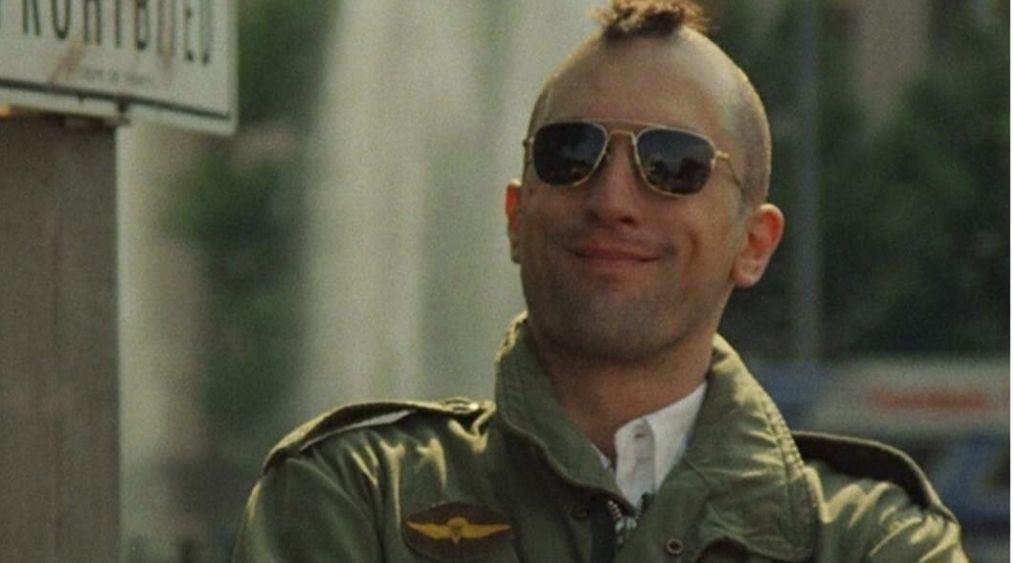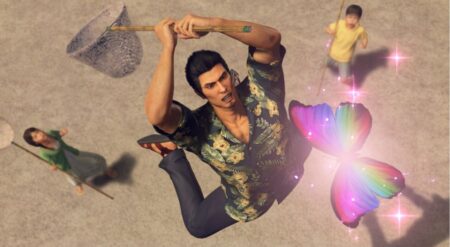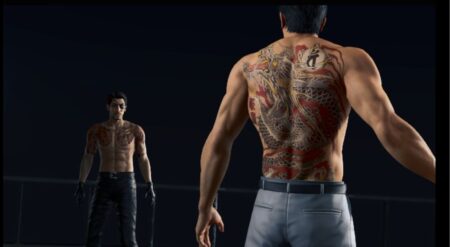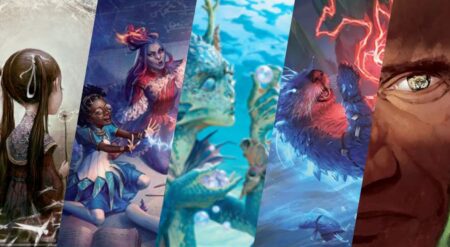I have no doubt being a man was hard in the 1970s. It’s certainly not easy today. I wallow in resentment for my being a man every single day. And I think Martin Scorsese and I have that in common about masculinity. People expect certain things of you simply for existing. Masculinity is, for me, a constant snare of distrust and the perception of violence, arrogance, and greed. Every day, I fear that I am taking up too much space, being too loud and too overpowering. It will be a life-long struggle to accept what I cannot change about my nature and improve upon the qualities I most abhor in myself.
While most of that is between me and my therapist, it’s also been between me and Scorcese. I loathed the man before I ever even met him—or, rather, his films. I had seen very few before the runup to Killers of the Flower Moon. Based on the veneer of his gangster flicks and his seemingly cruel leading men, I assumed he was driven by all the measures of masculinity I, and seeming Scorsese himself, have long lost the taste for. I could not possibly have been more wrong in my assumptions.
Martin Scorsese, by the account of his 50-year career directing films, is a man who, like me, struggles ceaselessly with the notion of masculinity and the way that masculinity presents itself in the world. But where I have feared and avoided men and their trappings for most of my life, socially, romantically, and intellectually, Scorsese has had the bravery to dive straight into the subject. I have grown the deepest admiration for his body of work and the journey this man has been on, as demonstrated by the leading men in his films and the morals of their stories.
It started in 1976 with Taxi Driver. While penned by Paul Schrader, a man whose own body of work proves a similar obsession with understanding masculinity, Marty’s throughline is clear regardless of his collaborators. Robert De Niro gets Scorscese’s ball rolling with a tragic performance. His character, Travis Bickle, is no good. Depraved, yes, but by the movie’s end, his morals are clearly out of whack. He’s the ultimate embodiment of the masculine response to injustice through violence.
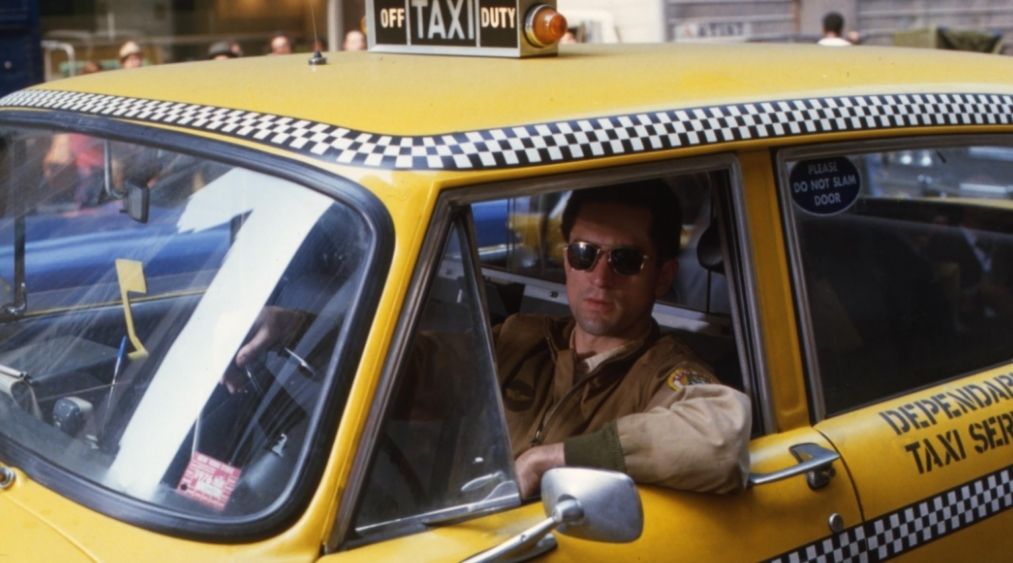
Idealized masculinity promises power, attention, and wealth. The more unstable, unsupported, and uncertain men feel, the more susceptible they are to the violence, sexism, and greed that easily stem from the desire for control. Scorsese understood from the start that men like Bickle are driven by their sense of manliness to do horrendous things. Yet, people want to celebrate men for acting on their masculine urges, even if they mistake a toxic high for catharsis.
Bickle is valorized—perhaps not explicitly by the movie’s text. He doesn’t receive a hero’s reward for his deeds, but the movie shapes him into a likable, forgivable guy from the start. Despite his misgivings, once all his terrible violence is concluded, you can’t be blamed if you don’t hate him. You probably even feel bad for him and appreciate his vigilantism.
Scorsese began his career clearly aware that something was awry with the standards of masculinity. Taxi Driver doesn’t explicitly lionize Bickle for his actions, nor does the movie outright condemn him. The result is a muddy message, but one that ultimately says, “Bad men who do bad things can still be good people.”
By 1990, Scorsese was well-established as a director who made movies about embattled men. Raging Bull in 1980 and King of Comedy in 1982 offer similar formulas to Taxi Driver. Their men are bad people who do bad things; the audience should admire them. Or, at least forgive them. But 1990 sees the first turning point in Scorsece’s relationship with masculinity. Ray Liotta is a different kind of leading man than De Niro. He plays the sly, likable Henry Hill. Right next to De Niro’s older, hardened Jimmy Conway, we see Scorsese’s conception of masculinity transforming between them.
Conway is a bad person who does bad things and has zero remorse. He’s not so different from the Travis Bickle De Niro played 14 years earlier, only he’s an outright criminal. Bickle’s morality is clear from the start. He has no scruples. A powerful scene of him crying in a phone booth tells us he’s a human being, but it doesn’t deny him his evil. On the other hand, Hill is a kid who got caught up with the wrong people in the wrong part of his life. He demonstrates how easy it is for men to fall into the traps of power, greed, and violence, even if he’s ultimately the movie’s moral center. When Hill turns on Conway, it’s supposed to redeem Hill.
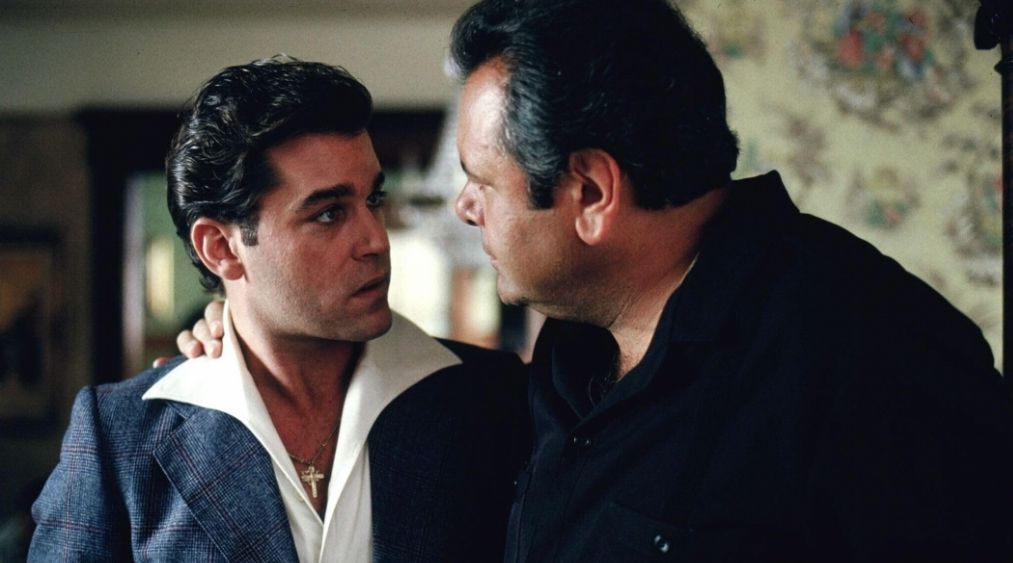
No matter what evils Hill wrought himself, the movie absolves him of wrongdoing. The movie even went as far as to help garner sympathy for the real-life Henry Hill, whose crimes and confessions inspired the movie. But this is a marked turn in Scorsese’s anatomy of a man. Hill is no longer just a blank slate for audiences to elevate as a folk hero for embodying masculine ideals like Travis Bickle before him. Henry Hill is a decidedly complicated man who shows remorse and a capacity for growth. He’s a bad man doing bad things but still a good guy. A good fella, if you will.
I, however, am not satisfied by this conclusion. And the next 30 years of Scorcese’s career would indicate he isn’t satisfied either. Masculinity is generally bound by ironic notions like honor and dignity, protecting one’s family, and doing one’s job hard and doing it well. It’s ironic because often, these notions come into stark conflict. Henry Hill can’t do his job well while also being honorable. He knows this, and that’s why he turns. But he also can’t protect his family if he doesn’t appear honorable and keep working for Conway. It’s why he does plenty of heinous things. And no man can be honorable while blatantly disrespecting their families, especially the women in their lives. Their work often requires dishonoring their families or women generally.
Masculinity is a complete fallacy. By 2013, The Wolf of Wall Street proved that Scorcese might also be getting sick of masculinity. Leonardo DiCaprio plays one of Marty’s foulest creatures to date, Jordan Belfort. He rises above the crop as so abominable because, unlike Bickle or Hill, Belfort is perfectly aware that he is awful and has no remorse for it whatsoever. While he doesn’t deal in death like leading Scorcese men before him, he certainly deals in ripping people off for endless amounts of money.
The coke tear of a movie works tirelessly to make you like Belfort. And it works because you see him trying desperately to be honorable, be a good family man, and succeed at his job. But under the thin surface, you know he’s a miserable piece of scum. Even when Belfort flips, it’s far from the dignified turn Hill made. Belfort was left with no choice. By the end of The Wolf of Wall Street, he’s a desperate and broken man. The only reason he cooperates with the authorities is to save the semblance of his manhood he has left. Lying to yourself to say you’re protecting your honor and your family, however, is the ultimate betrayal of the masculine ideal Hill thinks he’s living up to.
The Wolf of Wall Street is Martin Scorsese declaring that perhaps he had been wrong about men and their inner turmoil. If his movies to this point generally favored bad men and the bad things they did, The Wolf of Wall Street makes it clear that men who do bad things are, in fact, simply bad. It doesn’t mean they aren’t worthy of empathy. We can’t build a society where men have healthier relationships with their masculinities if we aren’t empathetic. Belfort can hardly help the ways he was raised and the culture of masculinity around him that helped morph him into a monster.

Yet empathy is not the same as sympathy. Belfort is a human being. Goodfellas showed Scorsese that masculinity doesn’t exclude men from having emotions. But men are still culpable for how they express their emotions. Translating the internalized sexism, greed, and violence inherent in masculinity doesn’t excuse men like Henry Hill or Jordan Belfort from taking responsibility for their actions. Or better yet, not taking action in the first place. Shunning Belfort and making him a pariah instead of absolving him like Hill illustrates a frustration with the masculine status quo. The Wolf of Wall Street wants us to disdain virtually every quality that made Belfort who he was. It’s a pure condemnation of all of his masculinized qualities.
Condemning toxic masculinity’s disservice to men is good. It’s satisfying, even. But it doesn’t resolve the fact that men are still plagued by their masculinity in the first place. For me, this is the most upsetting part of being a man. There is literally nothing I can do to change that fact. It’s how I was born and raised and socialized. And it’s how the world will always perceive me. Every interaction I will ever have will be impacted by the fact of my masculinity. I resent this reality with every fiber of my being. Nonetheless, for Marty and every man tortured by masculinity before us, it is our burden to bear.
2023, however, was the year that Martin Scorsese made the weight of masculinity feel a little lighter. Killers of the Flower Moon, like all Scorsese movies, is easy to mistake for being forgiving to its male lead. But you would be dead wrong. De Niro plays the ultimate form of Scorsese’s masculine scum in William Hale. He’s insidious. A wolf in sheep’s clothing if there ever was one. He pretends to be a benevolent, idealized version of masculinity. He’s kind, dapper, wealthy, cares about his family and his community, and works hard to earn his living. If the tenets of masculinity were incorruptible, the man would be the peak example of masculinity could be.
Of course, it’s all a facade. Hill is the most evil form of man Scorsese could create. All of his kindness and goodwill is a front to let him murder and steal from the very neighbors and family he claims to love so dearly. It’s a weaponization of masculinity that De Niro characters of yore would have been adored for. Killers of the Flower Moon is adamantly sick of men being celebrated for being bad people.
It’s what makes DiCaprio’s Ernest Burkhart such a perfect foil. Ernest is an empty sack of a man. He’s as dumb as Henry Hill but more like Travis Bickle; he has virtually no agency. And like Jordan Belfort, Ernest is capable of great evil. Because he is stupid and lacks independence, he’s more susceptible to evil than any of them. Enamored by the alluring version of masculinity Hale presented, Burkhart can’t help but idolize his uncle. Yet, the movie is barely even about Ernest.
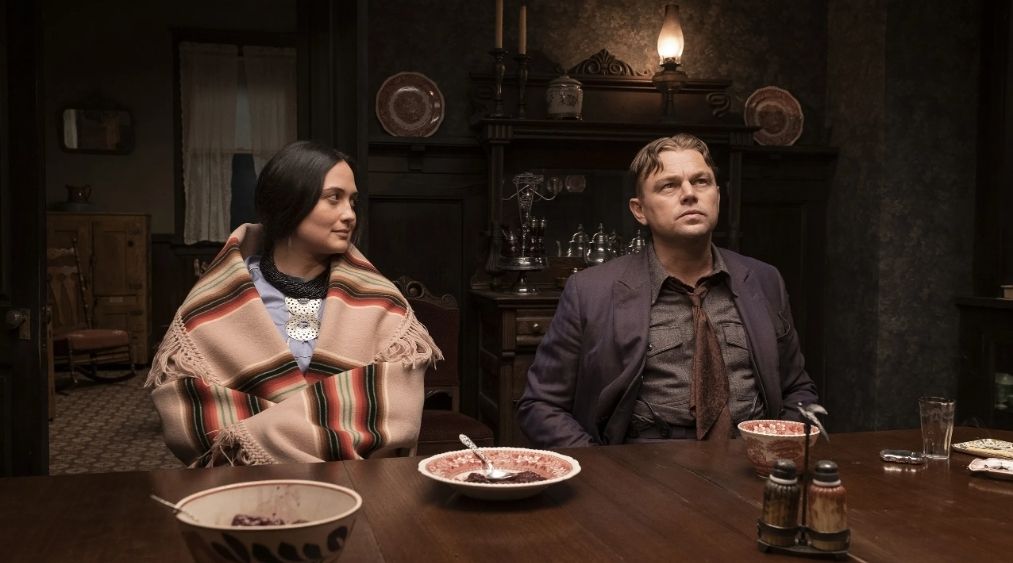
I can hardly remember a scene about Ernest that wasn’t really about his wife, Molly (Lily Gladstone). The ones that do come to mind do not serve him kindly. He bumbles and constantly pouts, and his time in jail is certainly not glorious. He’s just sad and miserable all the time. The only time Ernest was ever happy in Killers of the Flower Moon was before he became involved in his uncle’s evil. All that mattered to him then was honor, Molly, and finding work. The moment Hale corrupts these pillars of his masculinity, Burkhart becomes miserable. Because masculinity is a miserable trap.
Killers of the Flower Moon excels at dismantling the allure of idealized masculinity through its two men, but even more so through Molly. She is her own person. She exists outside of Ernest’s gaze. And when he is around, all the energy in the room is allotted to her. However, Scorsese isn’t saying that the true masculine ideal is for men to diminish to nothing so women can have space. Molly is willing to stay with Ernest for nearly all his misgivings. She doesn’t need Ernest to be small, so she can be great. She needs Ernest to be great so they can be great together.
But masculinity fails them both. Ernest can never be more than an insignificant, terrible man because his only true desire is to embody a form of masculinity his uncle’s treachery, and every Scorsese man before him, proves does not and cannot exist. Ultimately, Killers of the Flower Moon asserts with no reservation that masculinity, as it is traditionally held and revered, cannot be overcome. It is a prison, whether self-imposed or induced culturally. And any man, no matter how sympathetic, who falls victim to masculinity deserves no remorse simply because of it. Bad men are bad. Their masculinity is not an excuse.
I’m proud of Scorsese for reaching this point in his evolution of depicting masculinity on screen over 50 years. The moment he comes on screen in Killers of the Flower Moon feels like his moment of apologizing for his part in the toxic mythologizing of masculinity over the decades. It’s one of the movie’s most impactful moments. He wants us to know that he sees things differently now. Especially because I think he had this in him somewhere all along. Before Ernest Burkhart, even before Travis Bickle, there was Alice Hyatt (Ellen Burstyn) in Alice Doesn’t Live Here Anymore. The rare Scorsese movie fronted by a woman, this movie explains everything Scorsese would ever go on to explore about masculinity in one fell swoop.
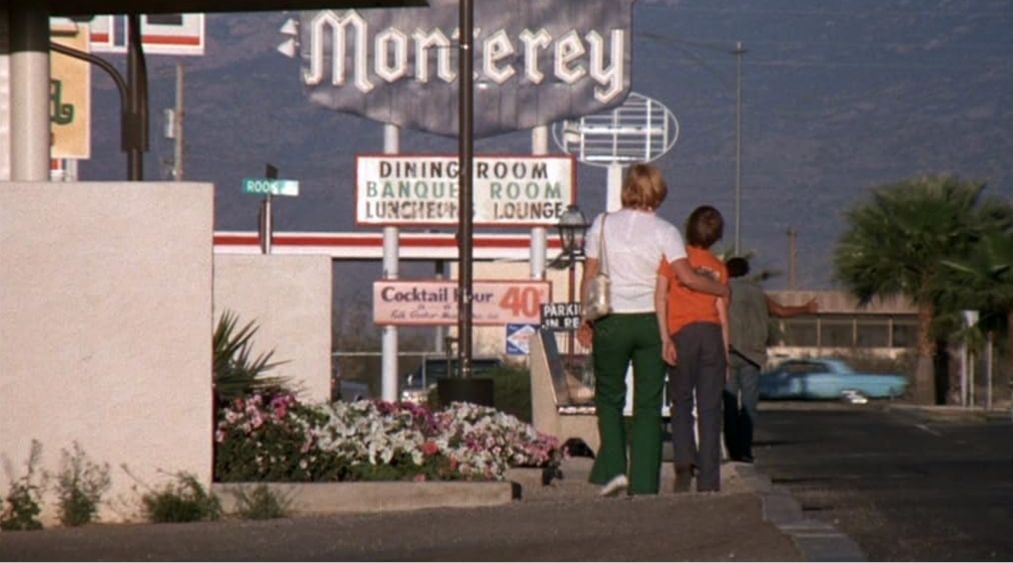
Alice is beleaguered by one bad man after the next in this film. Some she cowers from. Others she refuses to entertain. And more yet, she begrudgingly accepts it as the best she can hope to encounter. They’re all bad influences on her son, who will surely grow up scarred by his experiences with masculinity, too. But in the end, Alice only accepts the inevitability of masculinity on the condition that she be an equal partner to the man who wields it. If men can’t help but be the people their masculinity molds them into, then Alice, like Molly Burkhart 50 years later, refuses to feel like anything less than an equal to those men.
I don’t know how to become more comfortable being a man. Scorsese’s men are such visceral, textbook cases of the grip toxic masculinity has over them. And that toxicity spills over onto everyone these men interact with. Even if I don’t see myself in these men, I constantly fear that other people might. I’m not seeking an award for “most supportive man” or “man I’m most comfortable around.” I’m looking for a world where masculinity is so rare you can hardly recognize it. Scorsese nearly gets there in Killers of the Flower Moon. I think Ernest embodies a complete rejection of the entire masculine enterprise. But it also recognizes that we can never completely be rid of masculinity as a society.
Scorsese has always known that masculinity is inevitable. But 50 years in the director’s chair seems to have taught him that the antidote isn’t fanning it with attention. It’s not celebrating or villainizing masculinity or men in totality. The solution is simply depriving it of oxygen. If men see how small and empty masculinity makes men like Ernest Burkhart by the end of Killers of the Flower Moon, then maybe the allure of its traditions can be diminished. I can never fully rid myself of my masculinity. But maybe a world full of Ernests who have been emasculated by the failure of masculinity itself is the next best thing. At least then, I won’t have to be reminded of what I hate the most about myself every time I look at another man.

